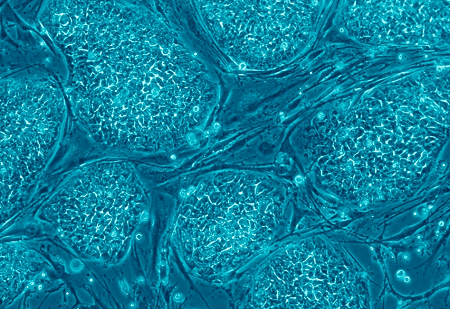Reassuring Genetic Changes in Stem Cells Generated from Humans

Human induced pluripotent stem cells (iPSCs) serve as alternatives to animal-based models of human diseases while also serving as promising therapeutic candidates for many degenerative or chronic conditions like Alzheimer’s disease and diabetes. Because iPSCs are generated by reprogramming the gene expression of a cell, there have been concerns that the genetic material delivered to the cell may introduce harmful mutations. Researchers from the Scripps Research Institute, BioNano Genomics, and National Institutes of Health recently demonstrated that iPSCs created by three different methods of reprogramming do not harbor concerning mutations. Bhutani and his colleagues determined this by completing whole-genomic sequencing analysis on the iPSCs and the original skin cells that they were derived from. This is the most comprehensive study on genomic changes induced by reprogramming in iPSCs to date. While the lack of major deleterious mutations after reprogramming continues to help support the development of iPSCs as a safe therapeutic candidate and a relevant nonanimal based model for human diseases, the authors warn that subsequent selective pressures in the expansion of iPSCs may still allow them to acquire harmful mutations. Therefore, analyzing iPSCs with whole-genome sequencing prior to clinical trials may still be necessary to ensure their safety.
References
- Bhutani K, Nazor KL, Williams R, et al. Whole-genome mutational burden analysis of three pluripotency induction methods. Nat Commun. 2016;7:10536 DOI: 10.1038/ncomms10536. http://www.nature.com/ncomms/2016/160219/ncomms10536/full/ncomms10536.html. Accessed March 1, 2016.








